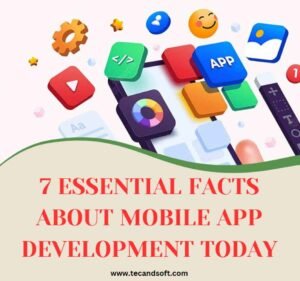What Is Mobile App Development? This field involves creating software applications designed to run on mobile devices such as smartphones and tablets. The process combines creativity with technical expertise, resulting in apps that cater to various user needs. Whether it’s a productivity tool or an entertainment platform, mobile app development plays a crucial role in shaping how people interact with technology today.

Understanding What Is Mobile App Development Process
The mobile app development process consists of several stages. These include planning, designing, developing, testing, and deploying the application. Each stage requires specific skills and resources. For instance, during the planning phase, developers identify target audiences and define project goals. In the design phase, user interfaces are crafted to ensure seamless navigation. Development involves coding the app using appropriate mobile app development technologies like Swift for iOS or Kotlin for Android. Testing ensures functionality and performance before deployment.
Mobile Application Development Example
A great mobile application development example is the popular fitness app MyFitnessPal. It demonstrates how developers can integrate multiple features into one cohesive platform. Users can track their daily calorie intake, monitor exercise routines, and set personal health goals. Such apps highlight the importance of combining usability with functionality when engaging users effectively.
Exploring Mobile Application Development PDF Resources
For those interested in learning more about this subject, there are numerous mobile application development PDF resources available online. These documents often provide detailed insights into the latest trends, methodologies, and best practices within the industry. They serve as valuable references for both beginners and experienced professionals alike who wish to enhance their knowledge base regarding mobile app creation techniques.
What Is the Best Tool for Mobile App Development
Selecting the right tool depends largely on individual preferences and project requirements. Some popular options include Flutter, React Native, Xamarin, and native platforms like Android Studio and Xcode. Flutter allows cross-platform development while maintaining high performance levels across different operating systems. React Native offers flexibility through JavaScript integration, making it ideal for web developers transitioning into mobile app creation. Meanwhile, native solutions guarantee optimal compatibility but may require separate codebases for each OS.
Android and iOS Development Guides emphasize choosing tools based on factors such as budget constraints, timeframes, scalability needs, and team expertise. Evaluating these aspects carefully helps determine which solution aligns best with your objectives.
Mobile App Development Technologies Driving Innovation
Innovative mobile app development technologies continue to revolutionize the way applications are built. Artificial intelligence (AI), Machine Learning (ML), Augmented Reality (AR), Virtual Reality (VR), cloud computing, and blockchain represent just some areas driving advancements forward. AI-powered chatbots improve customer service interactions by providing instant responses to common queries. AR/VR enhances immersive experiences within gaming environments or educational settings. Cloud services enable real-time data synchronization among devices worldwide. Blockchain ensures secure transactions without intermediaries involved.
Mobile Application Development Notes for Aspiring Developers
If you’re considering pursuing a career in this field, consider reviewing mobile application development notes regularly. These materials cover essential topics ranging from fundamental programming concepts to advanced architectural patterns. Familiarizing yourself with object-oriented principles, database management systems, network protocols, and UI/UX design fundamentals will strengthen your foundation significantly. Additionally, staying updated with emerging frameworks and libraries ensures you remain competitive within the ever-evolving tech landscape.
Mobile App Development Software Options
Various mobile app development software exists to assist developers throughout the entire lifecycle of building applications. Integrated Development Environments (IDEs) like Android Studio and Visual Studio Code streamline workflows by offering robust debugging capabilities alongside plugin support. Prototyping tools such as Adobe XD or Figma facilitate collaborative efforts between designers and coders during early stages of conceptualization. Furthermore, automated testing platforms contribute towards ensuring quality assurance prior to public release.
Mobile Application Development Course Pathways
Enrolling in a structured mobile application development course provides learners with comprehensive guidance tailored specifically toward mastering relevant skillsets required in the profession. Many institutions offer specialized programs focusing either exclusively on front-end/UI aspects or backend/server-side operations depending upon student interests. Online platforms also deliver flexible learning opportunities catering to busy schedules via pre-recorded lectures accompanied by interactive quizzes and assignments designed to reinforce theoretical understanding practically.
As we move further into an increasingly connected digital age, understanding what is mobile app development becomes even more critical. By embracing new technologies, utilizing effective tools, and adhering to proven processes, developers have endless possibilities at their fingertips to create impactful solutions addressing real-world challenges faced globally every day.
#WhatIsMobileAppDevelopment